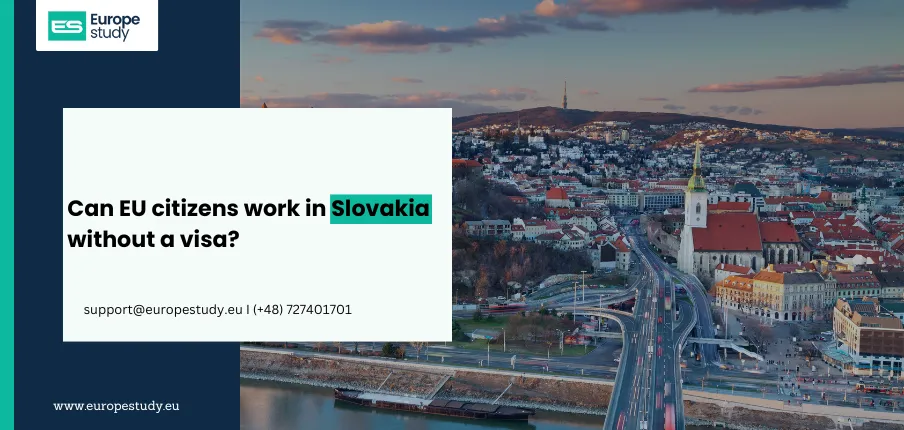
Can EU citizens work in Slovakia without a visa?
Slovakia, located in the heart of Central Europe, is a member of the European Union (EU) and the Schengen Area. This positioning makes it an attractive destination for European Union citizens seeking employment opportunities abroad. If you’re considering working in Slovakia and are a citizen of another EU country, you may be wondering whether you need a visa or work permit to do so. Here's a detailed look at what you need to know.
Freedom of Movement for EU Citizens
One of the core principles of the European Union is the freedom of movement for workers. This means that EU citizens have the right to live and work in any other EU country without needing a visa or work permit. As a result, EU citizens do not need a visa to enter or work in Slovakia.
This applies equally to citizens of the European Economic Area (EEA) countries (Iceland, Liechtenstein, and Norway) and Switzerland, due to bilateral agreements with the EU.
Working in Slovakia as an EU Citizen
While no visa or work permit is required, there are still certain administrative steps you must follow if you plan to stay in Slovakia for more than 90 days or intend to take up employment. These include:
1. Registering Your Residence
If you intend to stay in Slovakia for more than 90 days, you are required to register your residence with the Foreign Police Department within 30 days of entering the country.
You will need to provide:
- A valid passport or national ID card
- Proof of accommodation (rental contract, confirmation from landlord, etc.)
- Proof of employment or self-employment
- Health insurance documentation
- Sufficient financial resources (in some cases)
Once registered, you will be issued a Certificate of Registration of Residence, which confirms your legal stay in the country.
2. Employment Registration by the Employer
Although EU citizens can work freely, employers in Slovakia are required to notify the Labour Office (Úrad práce) of your employment within 7 working days from the start date. This is a formality, not a request for approval.
If you're self-employed, you'll need to register your business with the Slovak Trade Licensing Office (Živnostenský úrad) and may need to register with the tax office and health insurance provider.
Access to Social Services and Benefits
As an EU worker in Slovakia, you’re entitled to equal treatment in terms of:
- Working conditions
- Pay
- Access to housing
- Vocational training
- Social security benefits (health insurance, pensions, etc.)
You must register with a Slovak health insurance company, and contributions to the Slovak social security system are mandatory if you are employed or self-employed in Slovakia.
Language and Integration
While Slovak is the official language, English or German may be sufficient for work in international companies or in sectors like tourism and IT. However, learning Slovak will significantly improve your job prospects and help you integrate more easily into local society.
Summary
To recap, here are the key takeaways:
- EU/EEA/Swiss citizens do not need a visa or work permit to work in Slovakia.
- You must register your residence with the Foreign Police if staying longer than 90 days.
- Your employer must notify the Labour Office of your employment.
- You are entitled to the same workers’ rights and social benefits as Slovak citizens.
- Understanding the language and local regulations will enhance your experience.
Slovakia offers a blend of professional opportunities, rich culture, and affordable living. For EU citizens, the path to living and working there is relatively straightforward. With the proper planning and documentation, you can begin your career or new life chapter in Slovakia without significant bureaucratic hurdles.





